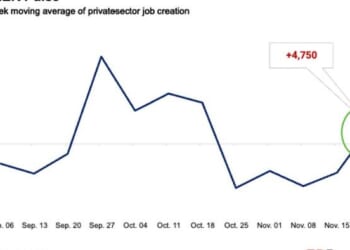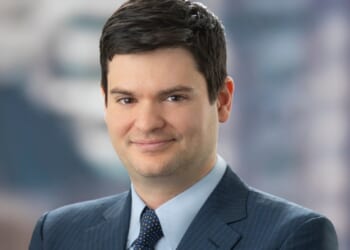“If sleep is the apogee of physical relaxation, boredom is the apogee of mental relaxation. Boredom is the dream bird that hatches the egg of experience. A rustling in the leaves drives him away.”
– Walter Benjamin “The Storyteller,” 1936
Today’s rustlers are stealing the silence needed to allow stories to percolate in our minds. They are noisy speedsters, gunning down the highway of regret, constantly pushing us to abandon any sense of living deliberately and relaxed for the bait of faster internet speed and 24/7 lives in which no one is ever “off.” Like our machines, we are barely sleeping in “sleep mode” and always ready for a fast wake-up to jump into action before our use-by-date is up. Run as fast as you can. Vamoose.
You can be sure that those who send and receive the most cell phone messages and emails have not heard from themselves in a long time.
Walter Benjamin was a German-Jewish writer who knew that doing nothing and reposing into boredom was the secret to creativity and wisdom. He knew that silence was an endangered species whose extinction would eradicate boredom. He knew, of course, with WW I and then Hitler’s rise to power in Germany, that the times were out of joint.
“Contrary to many interpretations of Nazism, which tend to view it as a reactionary movement,” writes Modris Eksteins in Rites of Spring: The Great War and the Birth of the Modern Age, “as, in the words of Thomas Mann, an ‘explosion of antiquarianism,’ intent on turning Germany into a pastoral folk community of thatched cottages and happy peasants, the general thrust of the movement, despite archaisms, was futuristic.”
As with its lightning fast warfare – Blitzkrieg – and emphasis on “breaking out” to the future – Aubruch – it was technocratic and progressive, with an emphasis on speed. Its romantic visions of returning to a conservative past were pure propaganda, used to fool Germans into thinking the country was on its way back while it was hurtling forward to a nihilistic, mechanized future based on violence, nationalism, and demagoguery. Its future was futuristic.
What Benjamin didn’t and couldn’t know was that sound sleep, silence, and tranquility would, with the rise of digital technology, cell phones, and the internet, become very rare as speed and a general mood of constant emergency would dominate people’s subconscious lives; that permanent busyness would become the norm; that technique and machines, in the service of creating the machine mind, would come to dominate societies, no matter what the political rhetoric.
Wendell Berry’s 1968 poem, “The Peace of Wild Things,” seems quaint these days.
When despair for the world grows in me
and I wake in the night at the least sound
in fear of what my life and my children’s lives may be,
I go and lie down where the wood drake
rests in his beauty on the water, and the great heron feeds.
I come into the peace of wild things
who do not tax their lives with forethought
of grief. I come into the presence of still water.
And I feel above me the day-blind stars
waiting with their light. For a time
I rest in the grace of the world, and am free.
Berry is now an old man, a farmer-poet, a naturalist, a prodigious writer who has written all his work on a manual typewriter. He is a slow man; out of step with today’s speed time and being 91 years-old is nearing the end of his life as the world frantically races on faster and faster.
Hustler or idler, getting things done or leaving things undone? For myself, such a choice may be a bit extreme. But I know that I’m not going to read The Tao Te Ching for wisdom since the Tao doesn’t reside in books. Nor does sapience depend on a podcast or an encounter with God depend on reading the holy books. I don’t need any more studies or conferences on social issues whose truths have been long apparent. How many details are necessary to grasp the obvious once you are acquainted with the principle? “It is so hard to forget what is worse than useless to remember,” said Thoreau in his essay “Life Without Principle.” Few were listening then and fewer now.
The modern view of time asserts it is an objective measurement; it ticks away and for everyone ends in death. So fight the clock; fight death. Hurry, hurry! Run, Rabbit, run. The clock is running out.
But despite this view that clock time measures one’s journey toward death, I have experienced another dimension of time that is “timeless.” I am sure you have, also. It is timeless and exists alongside clock time. It is rooted in love and takes different forms – God, sex, art, moments playing basketball, and human solidarity against evil forces being a few.
This variation in the experience of time is also natural. Clocks “tell us” one thing, but our experience of time tells us another. Even now here in New England as winter comes on, our experience of time is slowing down as nature goes dormant until the spring. Then time speeds up for us as over one night in spring the vegetation grows exponentially. We wake up and feel our hearts beating faster and a spring in our step. Excitement pulses through our veins.
All the while throughout the seasons, the clocks – now mostly digital – click their sad numbers so monotonously as if they are telling us something.
I am considering starting a movement to create “do nothing days” by announcing the movement has started and immediately bowing out to do exactly nothing.
Things have gotten so bad these days that if you ask a retired person how they are doing, they will proudly tell you they keep very busy, as if that is a badge of honor. Any thought of the contemplative life is an anathematic kiss of death.
At the risk of boring you and putting you to sleep and not to hatch the egg of experience, I will tell you a weird story appropriate to our most weird times. That it occurred on the night between Halloween and All Saints Day, Nov. 1, and on the weekend when eidolons and spooky images of death perambulate the streets and byways of our imaginations, might be significant if you believe in conspiracy theories and all that way-out nonsense. I can attest to its factual nature only, not to its significance. Doing so could leave egg on my face.
On this recent Halloween night, my wife and I went to sleep at our usual early hour. In the morning when we awoke, the ugly little digital clock on the table by the window read 5 A.M. So we got up, this being our normal waking time. As we passed another room, we noticed that the clock in that room said the same. But when we got downstairs, we saw that a numbers of clocks reported it was 4 A.M. We checked all the clocks in the house and four said it was 4 A.M. and four plus the telephone said 5 A.M. Naturally we were confused. Daylight Savings Time was not scheduled to end until the following day and then the clocks were to be set back an hour, not forward, and yet four of ours jumped forward, as if to tell us to hurry up, time’s running away and we’re late, we’re late for an important date. Like Alice in Wonderland, we wondered if we had gone mad, and these lines popped to mind: “‘Have I gone mad?’ ‘I am afraid so, you are entirely bonkers. but I will tell you a secret… all the best people are.‘”
There was no technological answer for this strange occurrence.
Were we “losing time” or “maintaining time” or “conquering time” or was some comedian sending us a message that despite clocks we had no control over time, that it was a mystery, as we are, that the line between then and now and tomorrow, between life and death, dreams and reality is so thin as to be ghostly?
Despite this spooky reminder that we all live “out of time,” my wife synchronized all the clocks to pretend she was reasserting control and was not too bonkers.
I decided to do nothing.
Reprinted with the author’s permission.











